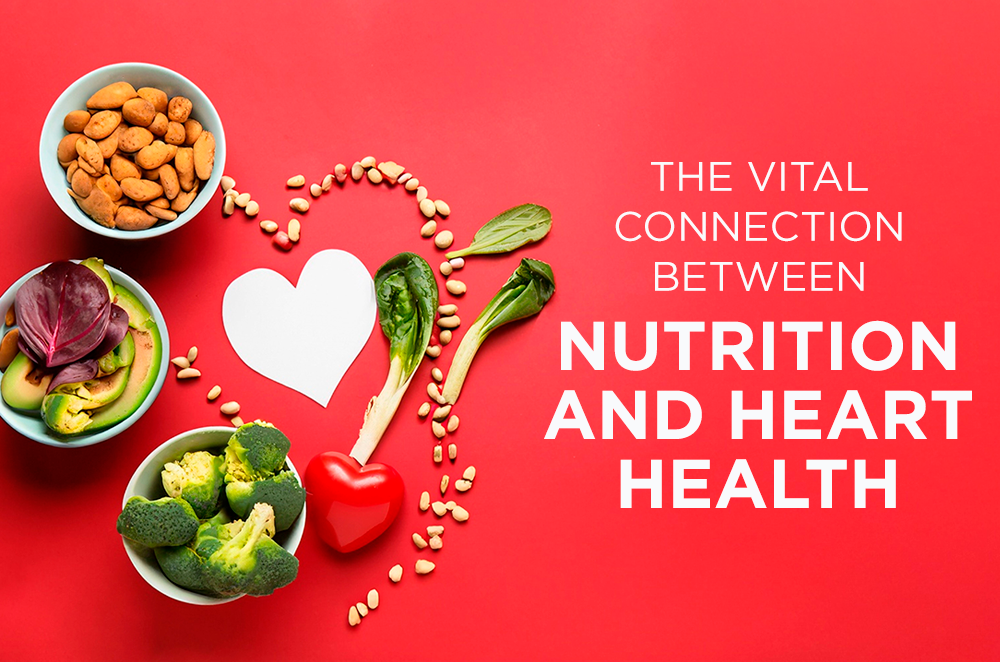The heart, that tireless organ at the core of our being, sustains us with every beat, pumping life-giving blood throughout our bodies. Yet, in the face of modern lifestyles and dietary choices, heart disease remains a leading cause of mortality worldwide. Fortunately, a profound connection exists between nutrition and heart health, offering us a powerful tool to nurture and protect this vital organ.
Understanding Heart Health
Heart health encompasses a spectrum of conditions, from hypertension to coronary artery disease and heart failure. A healthy diet and lifestyle are the keys to preventing and managing cardiovascular disease. While genetic predispositions play a role, lifestyle factors such as diet are within our control and can significantly impact cardiovascular wellness.
The Power of Nutrition
A well-balanced diet rich in whole foods provides the cornerstone for cardiovascular health. The American Heart Association recommends the following key elements:
Fruits and Vegetables: Vibrantly colored fruits and vegetables are packed with antioxidants, vitamins, and minerals that support heart health. Aim for a diverse range of colors to ensure a spectrum of nutrients.
Whole Grains: Whole grains like oats, quinoa, and brown rice are high in fiber, which helps lower cholesterol levels and reduce the risk of heart disease.
Healthy Fats: Incorporating sources of healthy fats such as avocados, nuts, seeds, and olive oil into your diet can improve cholesterol levels and reduce inflammation in the arteries.
Lean Proteins: Opt for lean protein sources like fish, poultry, tofu, and legumes to reduce intake of saturated fats and cholesterol.
Limit Processed Foods: Processed foods, high in refined sugars, unhealthy fats, and sodium, contribute to inflammation and cardiovascular risk. Minimize their intake as much as possible.
Mindful Eating: Cultivate mindful eating habits, paying attention to hunger and fullness cues. Avoid eating in front of screens and savor each bite to foster a healthier relationship with food.
Hydration: Proper hydration is essential for cardiovascular health. Aim to drink plenty of water throughout the day, as dehydration can strain the heart.
The Mediterranean Diet
One dietary pattern that consistently emerges as heart-healthy is the Mediterranean diet. Characterized by an abundance of fruits, vegetables, whole grains, fish, olive oil, and moderate wine consumption, this approach has been associated with reduced risk of heart disease and stroke.
Supplements and Heart Health
While a balanced diet should provide most essential nutrients, certain supplements can complement heart health efforts. Omega-3 fatty acids, found in fish oil supplements, have been shown to reduce triglyceride levels and lower the risk of heart disease. Additionally, vitamin D, magnesium, and coenzyme Q10 are among the supplements that may benefit cardiovascular health, although it’s essential to consult with a healthcare professional before starting any new regimen.
Nutrition serves as a cornerstone for optimal heart health, offering us the power to nourish and protect our cardiovascular system. By embracing a diet rich in whole foods, abundant in fruits, vegetables, whole grains, and healthy fats, we can pave the way for a vibrant heart and a healthier life. It’s important to make mindful choices that sustain and nurture the life force of our being: our heart.
If you or a family member are experiencing cardiac issues, reach out to CCMH’s Heart and Vascular Center at 580-250-4278. CCMH takes pride in offering the most extensive and advanced heart program in Southwest Oklahoma, providing cutting-edge cardiac procedures and comprehensive treatment for various heart conditions. Discover more about the services available at CCMH’s Heart and Vascular Center.
Resources:
Disclaimer:
The Comanche County Memorial Hospital website does not provide specific medical advice for individual cases. Comanche County Memorial Hospital does not endorse any services obtained through information provided on this site, articles on the site or any links on this site.
Use of the information obtained by the Comanche County Memorial Hospital website does not replace medical advice given by a qualified medical provider to meet the medical needs of our readers or others.
While content is frequently updated, medical information changes quickly. Information may be out of date, and/or contain inaccuracies or typographical errors. For questions or concerns, please contact us at contact@ccmhhealth.com.

